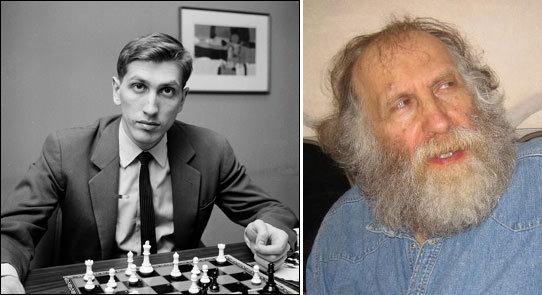
The Legacy of Bobby Fischer
Some grandmasters compared Fischer's play to that of a computer; a player without noticeable weaknesses.
Biographers David Edmonds and John Eidinow wrote:
Faced with Fischer's extraordinary coolness, his opponents [sic] assurance would begin to disintegrate. A Fischer move, which at first glances looked weak, would be reassessed. It must have a deep master plan behind it, undetectable by mere mortals (more often than not they were right, it did). The US grandmaster Robert Byrne labeled the phenomenon "Fischer-fear". Grandmasters would wilt, their suits would crumple, sweat would glisten on their brows, panic would overwhelm their nervous systems. Errors would creep in. Calculations would go awry. There was talk among grandmasters that Fischer hypnotized his opponents, that he undermined their intellectual powers with a dark, mystic, insidious force.
Kasparov wrote that Fischer "became the detonator of an avalanche of new chess ideas, a revolutionary whose revolution is still in progress". In January 2009, reigning World Champion Viswanathan Anand described him as "the greatest chess player who ever lived". Serbian grandmaster Ljubomir Ljubojević called Fischer, "A man without frontiers. He didn't divide the East and the West, he brought them together in their admiration of him."
German grandmaster Karsten Müller wrote:
Fischer, who had taken the highest crown almost singlehandedly from the mighty, almost invincible Soviet chess empire, shook the whole world, not only the chess world, to its core. He started a chess boom not only in the United States and in the Western hemisphere, but worldwide. Teaching chess or playing chess as a career had truly become a respectable profession. After Bobby, the game was simply not the same.
